 Approved by Dr. Dwight Alleyne, DVM
Approved by Dr. Dwight Alleyne, DVM 7 Tips to Make Your Dog Smell (A Lot) Better
Nobody likes an embarrassing dog smell. But besides just marching them off to the bath, there's a lot you can do to get them smelling like home again. Let's start with these 7 tips.
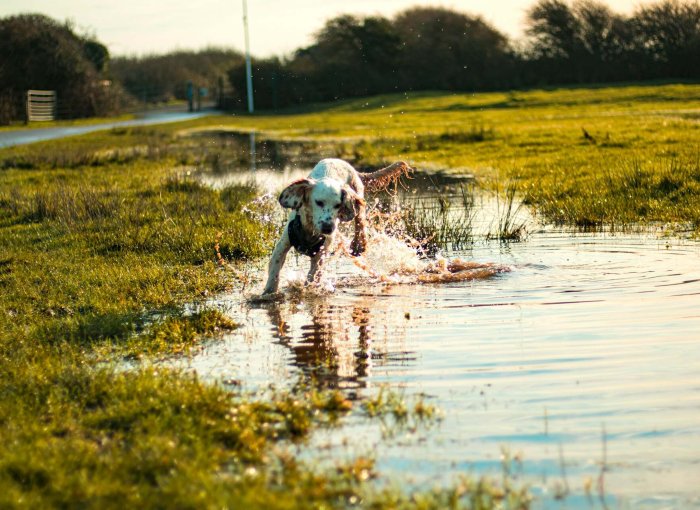
Ever come home to find that irresistable musky odor – aka, that wet dog smell? Yeah, we’ve been there too. Few things in life compare to the experience of coming across a smelly dog…and wishing we hadn’t. (Especially as they chase after you for kissies.)
Now, we love our dogs and know you do too. But let’s face it: a bad dog smell can be a pretty big turn-off. Plus, most dogs’ smell can range from healthy and pleasant, to lightly smelly, to downright stinky and sometimes unbearable.
As it turns out, bad breath, poor hygiene, smelly dog farts and other factors come into play. So if you want to find out the reason why your dog stinks, you’ve come to the right place!
In this post, we’re also going to cover some tips to get your dog to smell better – including how tracking your dog’s location can actually help you prevent them from exploring somewhere “smelly” nearby. (And bringing it home along with them.) Let’s find out how.
Why do dogs smell – why does my dog stink?!
Like us, dogs naturally have their own smell which is perfectly normal. But if their odor becomes abnormally strong or fishy – it’s a good idea to find the cause of the bad dog smell before choosing a treatment.
Here are a couple of reasons behind a smelly dog – and why they tend to occur.
Poor grooming
Senior dogs or dogs in poor health may stop self-grooming:
- This might be due to mobility-affecting health conditions like arthritis, which can make it difficult for them to move.
- And if you’ve noticed how dogs tend to turn into pretzels while grooming themselves, you might understand why your grand-paw finds it tricky to clean up those hard-to-reach spots.
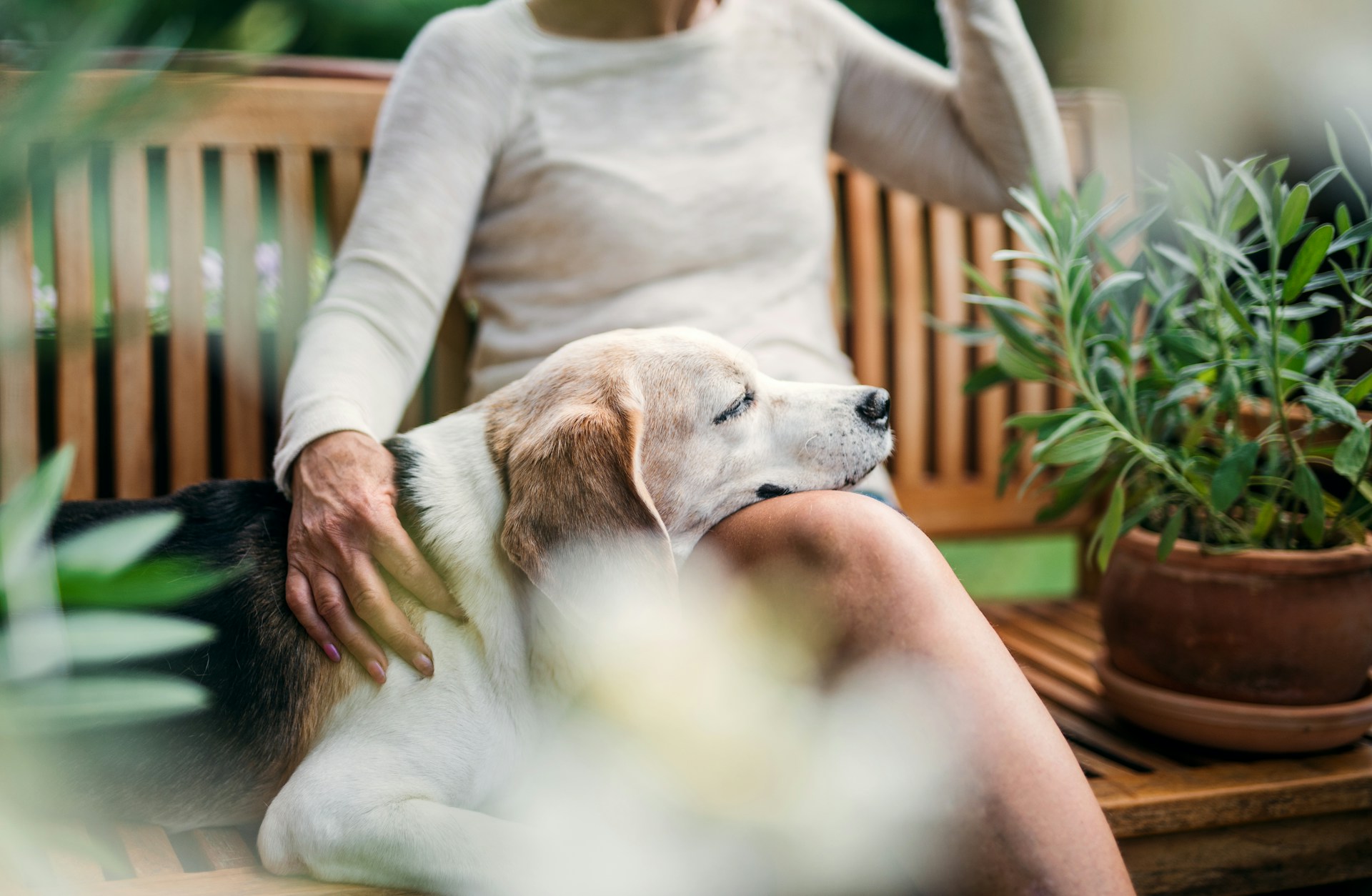
Unfortunately, with time, this can cause them to develop a bad smell. As oils, dander, and dirt build up, your once-fragrant pup might turn into a foul-smelling one instead. So keep an eye out for your dog’s grooming habits to see if this is the culprit.
Read more: How To Convert Dog Years To Human Years To Find Your Dog’s Real Age
Ear infection
If your dog has a strong smell coming from the ear and/or you notice any redness or swelling, it may be a sign of an ear infection. You might also notice your dog scratching their ears more often. Make sure to head over to a vet as soon as possible if you notice any of these signs.
Wet dog
A dog’s skin is filled with glands which excrete liquids. Those are meant to protect the dog’s skin. The composition of these liquids is often the reason why your dog smells. As the fur gets wet, more particles are spilled out and the unpleasant smell increases.
Your dog’s adventures outdoors
When your dog goes outside, they’re exposed to all the (possibly smelly) things out there (like skunks).
Plus, many dogs love to roll around in mud, dirty water, or even other dogs’ poo! So yes, this could be one reason why your dog stinks.
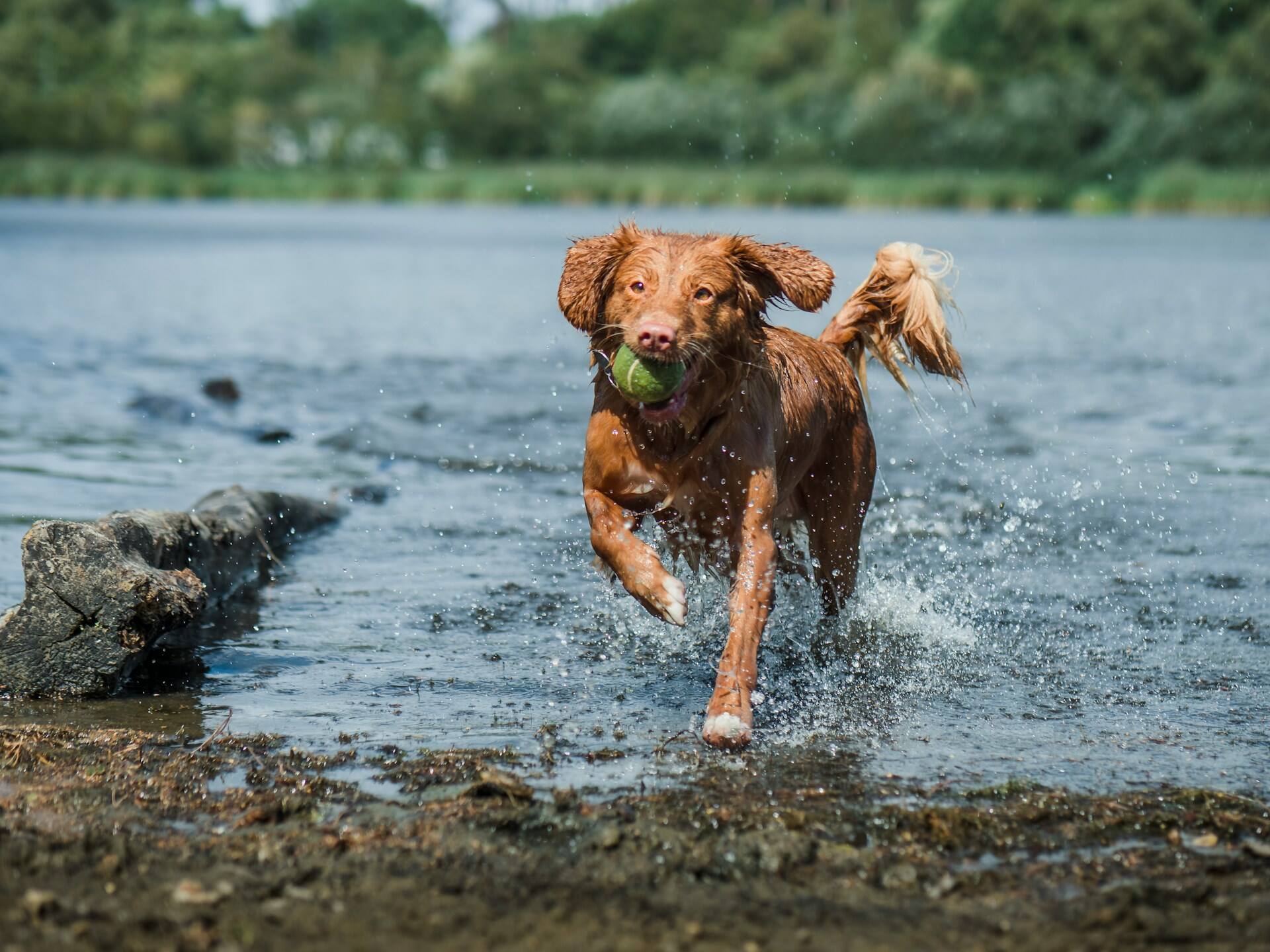
💡But when you monitor where your dog’s off wandering, you can better intervene if you spot them heading off somewhere they’re likely to pick up the stinkies. (Like your neighbor’s freshly-fertilized farm or a manure heap nearby.)
(Though, to be fair, this can be difficult to do by yourself. After all, you can’t hover over your dog and monitor their movements every single minute of your day.)
It’s why dog parents around the world – just like you – are tracking their buddies’ outdoor adventures with dedicated pet GPS trackers.
With the Tractive GPS, for example, you can:
- Pinpoint your dog’s location in real-time.
- Or set up a “safe zone” which sends you an immediate escape alert if your dog sneaks past it.
- Or learn your dog’s favorite hangout spots – or where they like to spend most of their time.
So you can prevent them from running off and picking up something smelly. (And potentially infectious!) Or know exactly where to look for them first if they go missing.
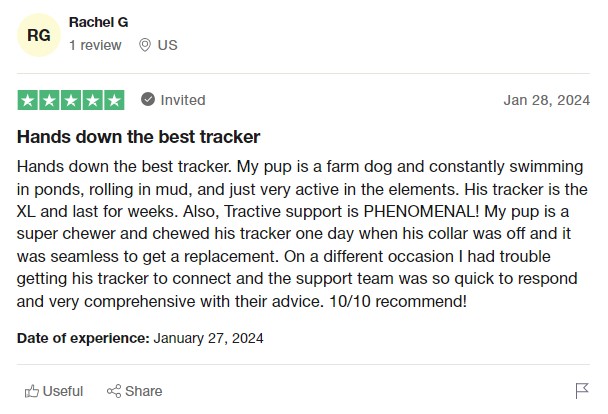
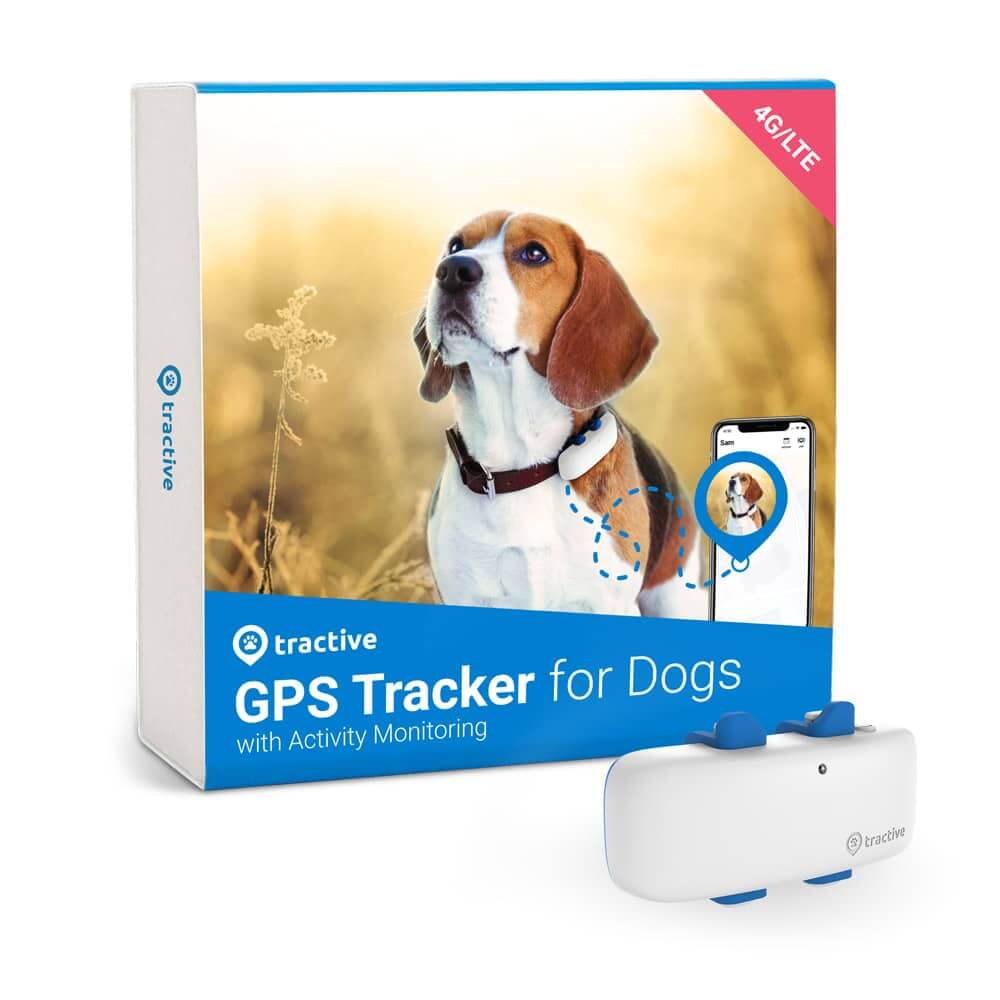
Always know where your dog is
Follow every step in real-time with unlimited range. Get alerts if they wander too far. Keep them happy & healthy with Wellness Monitoring. And let others – like walkers or sitters – keep an eye on your dog too.
Dental disease or halitosis
Halitosis is another name for bad breath in dogs, and it may be caused by bacteria caused by plaque buildup, tartar, decomposing food, bleeding, or oral tumors1.
So make sure to brush your dog’s teeth regularly to prevent odor and check for any oral health issues. Stay on top of your dental cleanings with your vet or a professional service.
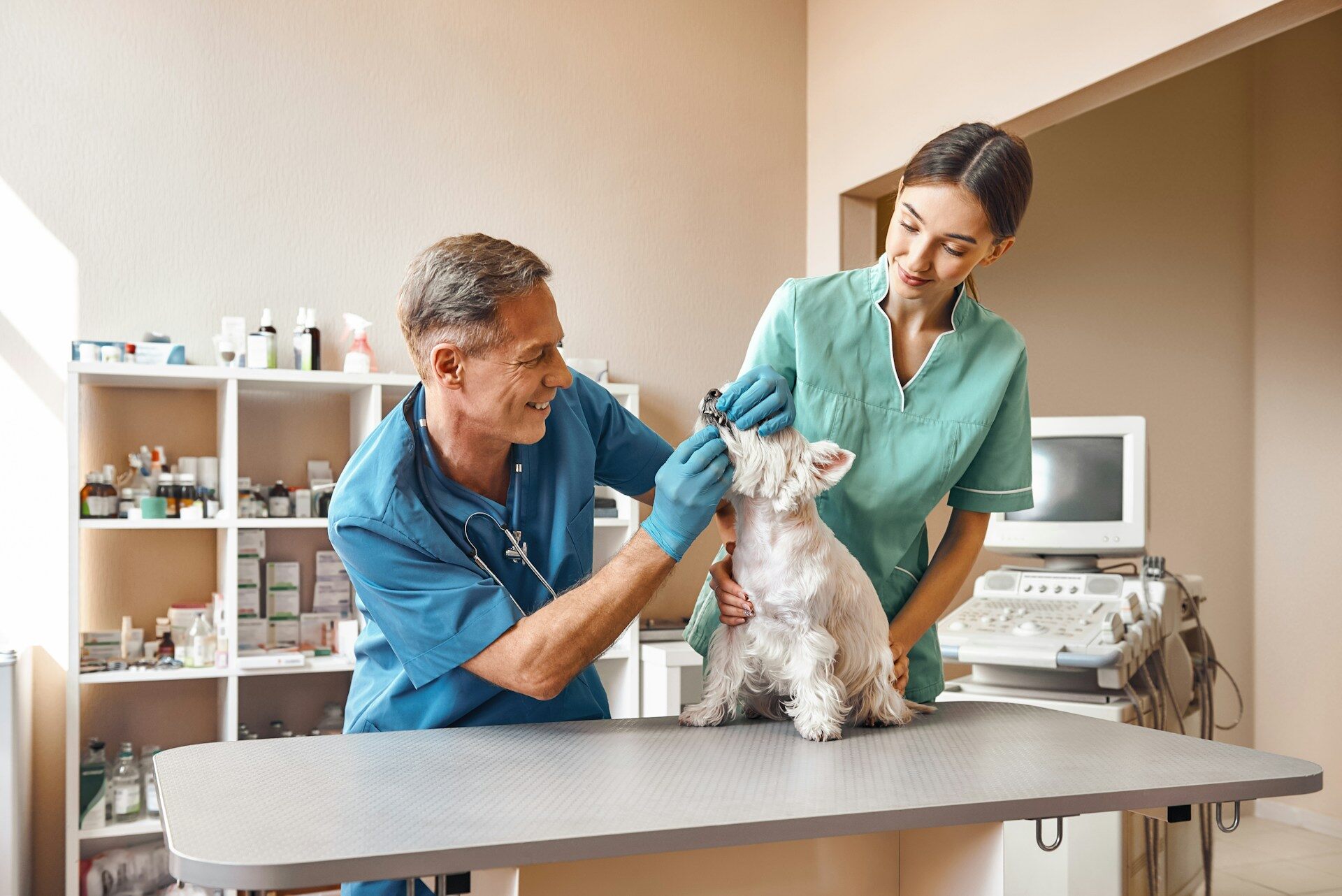
Gas
Aka dog farts – a common reason why dogs smell.
- This could be a sign that your dog has eaten something that’s difficult to digest.
- Or if serious bouts of gas occur more often, your dog may have a food allergy or bowel disease.
⚠️ Make sure to drop by a vet if you suspect that your dog farts more than normal. In fact, “garbage gut” is a common term vets use to describe of gastroenteritis that’s caused when pets eat food or items they’ve scavenged out of the trash.1
So make sure to monitor where your dog’s off wandering – so you can prevent them from going dumpster diving.
Read more: What Can Dogs Not Eat? 15 Foods Poisonous To Dogs
Atopy or allergies
Atopy is a skin condition caused by environmental allergies and can lead to other issues – including odor in dogs. Tracking your dog’s outdoor wanderings can help you pinpoint which areas in your environment they’re off exploring – and from where they tend to come home itchy. (Or smelly.)
5 ways to make your dog smell better – both with & without a bath!
1. Feed a high-quality diet
Diet is an important factor that affects your dog’s smell. So if you want to improve your dog’s smell naturally, avoid feeding them low-quality food that includes additives, preservatives, or artificial flavors. Try and avoid dog foods that are high in grain content as well.
Rather, switch to dog food brands higher in meat content. (Along with muscle and organ meats.) Besides, supplements like probiotics can also help their digestion – and also improve their smell.
Dogs can also safely eat a number of fruits and vegetables. Fresh herbs like parsley will also help neutralize your dog’s smell.
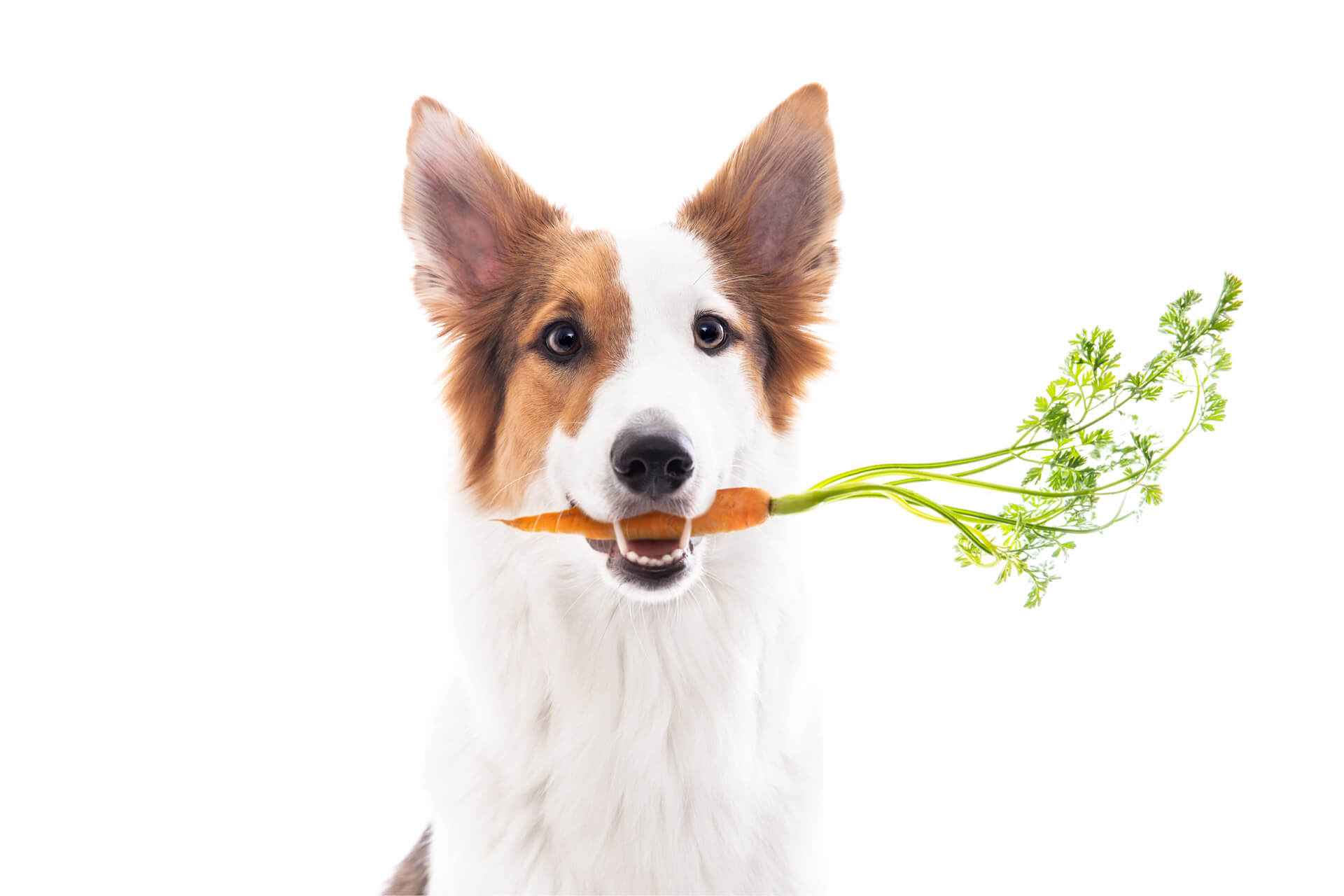
2. Keep up with your dog’s grooming routine
Dogs groom themselves, but that doesn’t need to mean they don’t need your help. With a home-friendly dog grooming routine, you can help your dog stay clean (and healthy):
- Brush your dog’s coat regularly to prevent unpleasant odors and manage shedding.
- Gently rinse your dog’s coat and feet after they get dirty from playing outside.
- Bathe your dog as needed (talk to your vet for recommendations).
- Gently remove dirt and crust from around your dog’s eyes with a soft damp cloth any time you notice it.
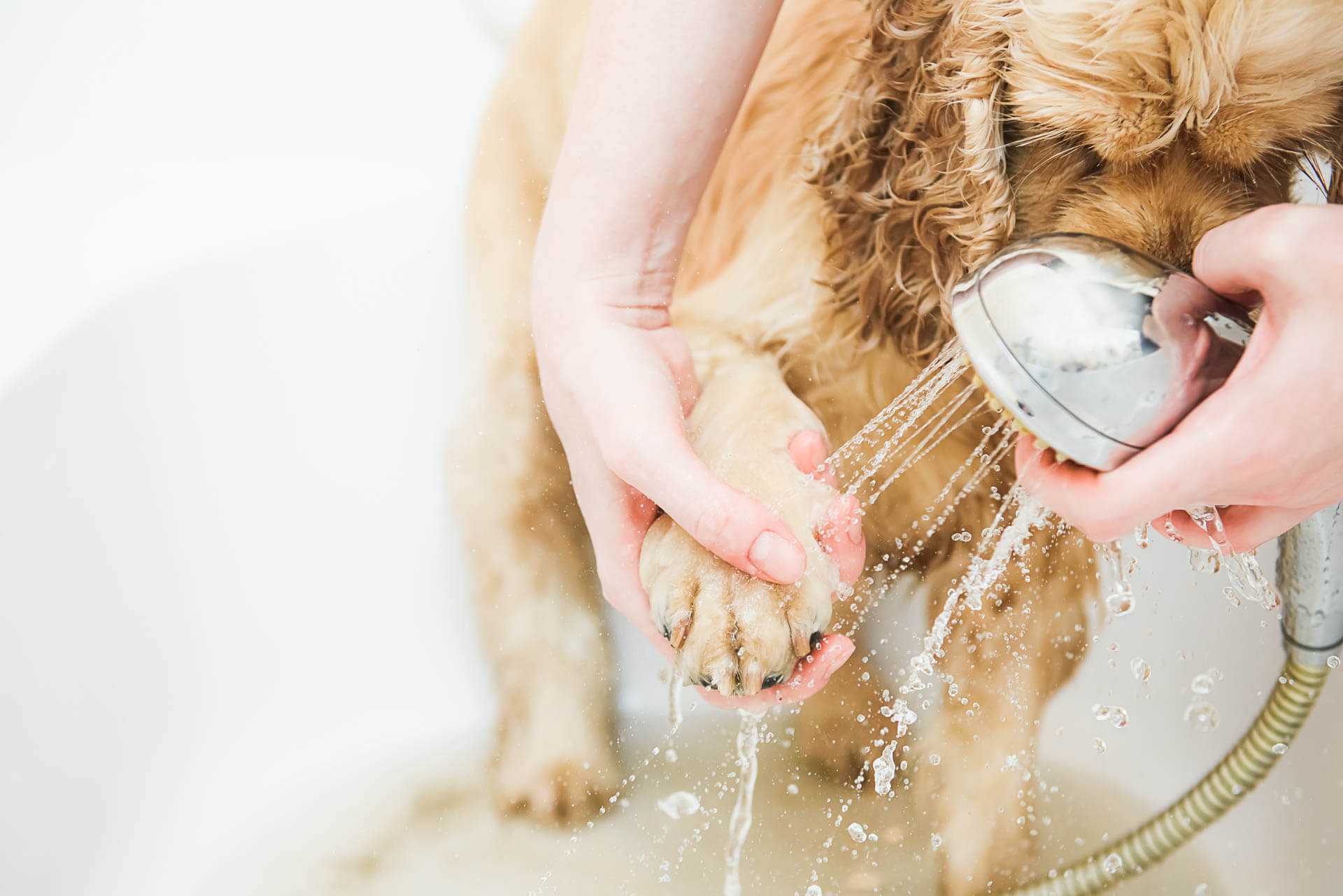
- Wipe the fold and flaps of dog ears with a clean damp cloth every few weeks.
- Trim the coat, and hair between your dog’s paw pads, as needed.
- Clip dog nails regularly and take good care of paws.
- Add a bit of baking soda to your dog’s bathtime. It can help neutralize bad smells.
3. Wash bedding regularly
No matter where your dog sleeps, make sure to clean their bedding regularly to avoid odor. Dirt, bacteria, dust mites, skin cells, hair, environmental debris, and even parasites can accumulate in a dirty dog bed. So wash your canine friend’s bedding often, just as you should wash your own bed sheets.
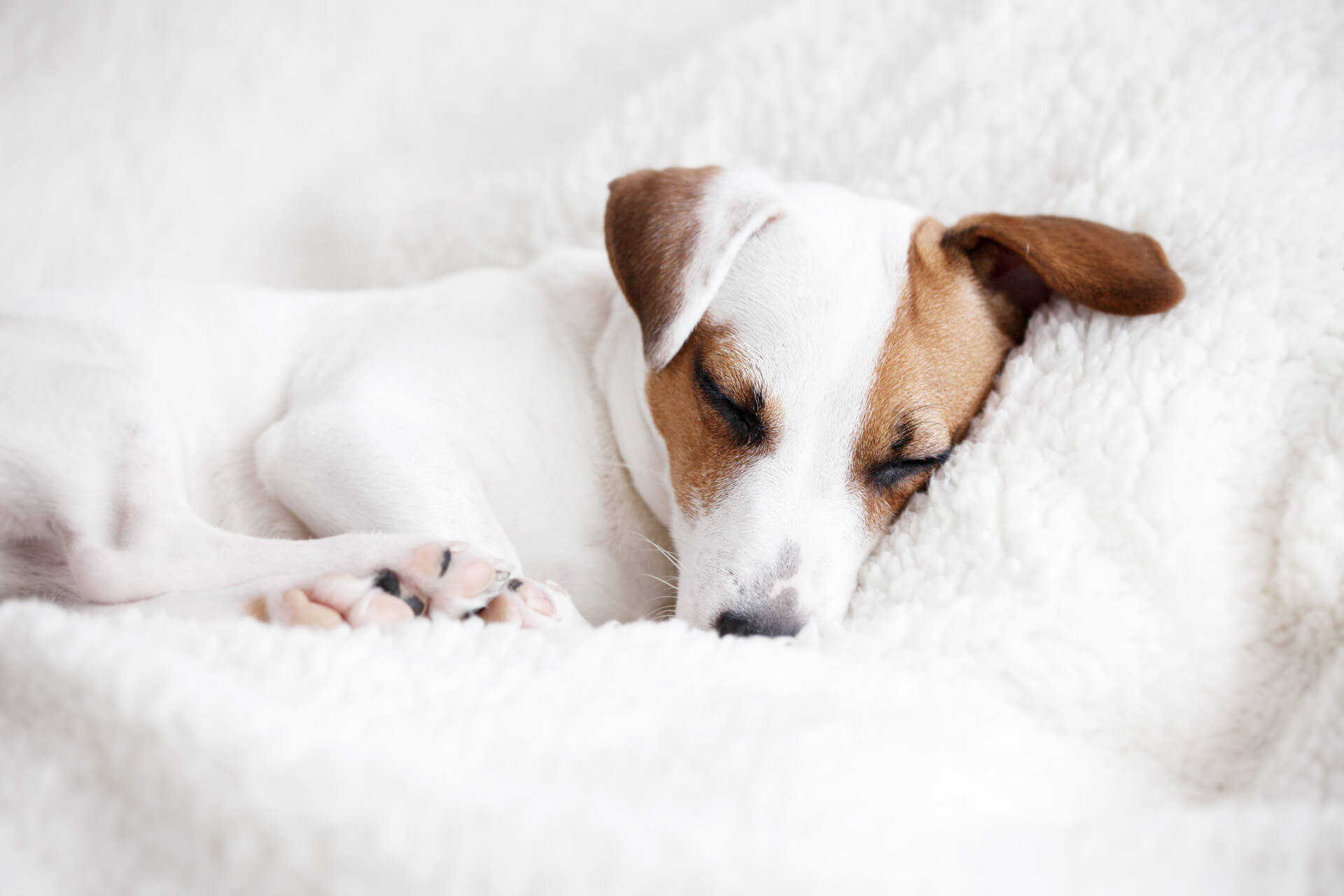
⚠️ According to the Cleveland Clinic, dogs can bring fungal organisms into bed with you – like the kind that causes scabies – another reason to wash bedding often!2
4. Don’t forget to brush your dog’s teeth!
Brushing your dog’s teeth regularly is another way to avoid an unpleasant dog smell. It will prevent the buildup of plaque and tartar, not to mention gingivitis and gum disease. You can simply use water to brush your dog’s teeth or a special dog toothpaste.
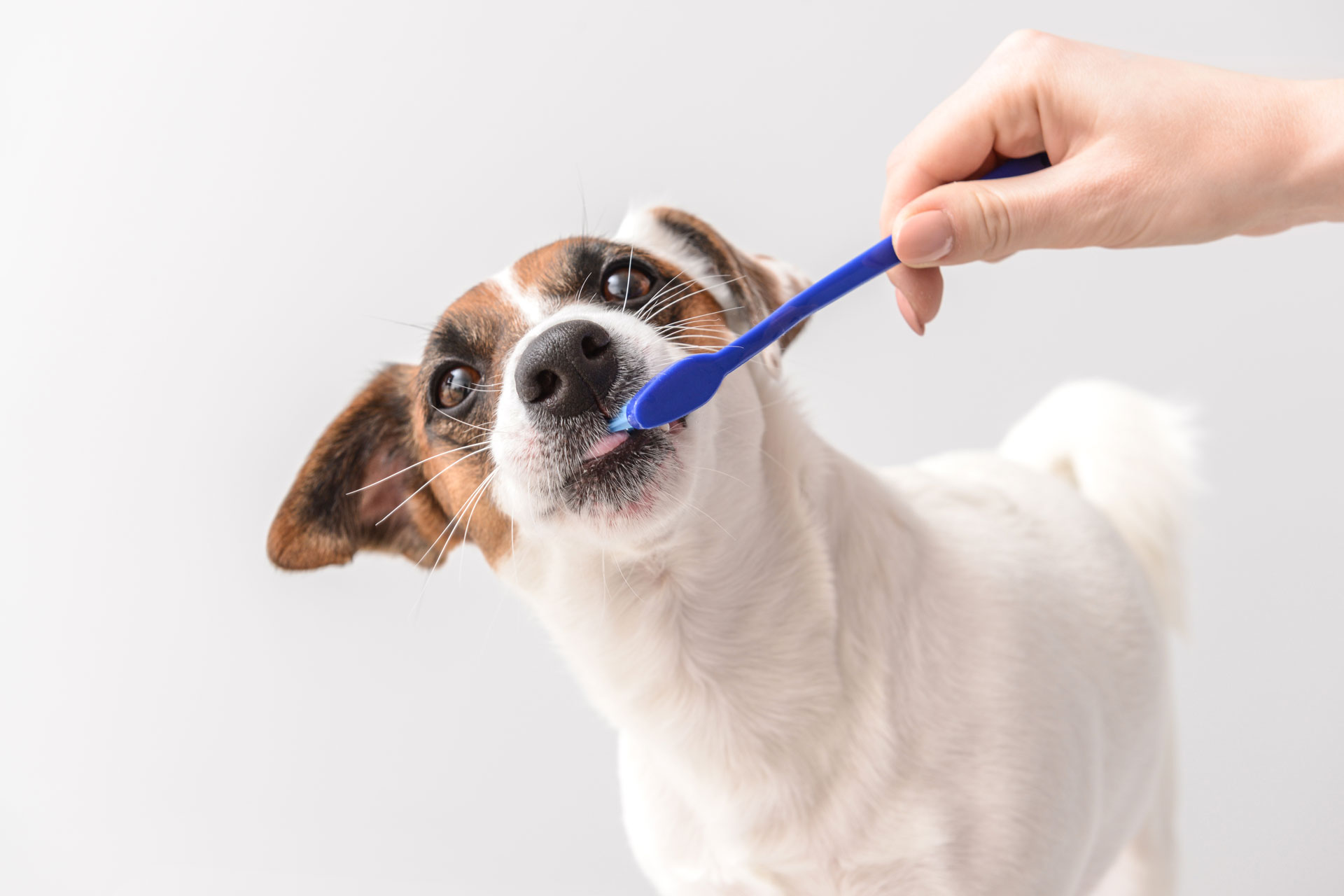
⚠️ Your dog’s dental care routine goes a long way. Dental calculus (tartar) and caries (cavities) can cause bad breath in dogs. And even more so, dental bacteria can infect other organs in your dog’s body – including their heart. Which, left untreated, can be fatal.
5. Checkup at the vet
Sometimes, a smelly odor in dogs is caused by an underlying health condition that may need treatment. For example, your dog’s bad breath might not just a result of poor dental hygiene. Rather, it might also arise from conditions like diabetes or kidney disease.2
So if your dog really stinks, it’s a wise idea to bring your dog to the vet for a full check-up.
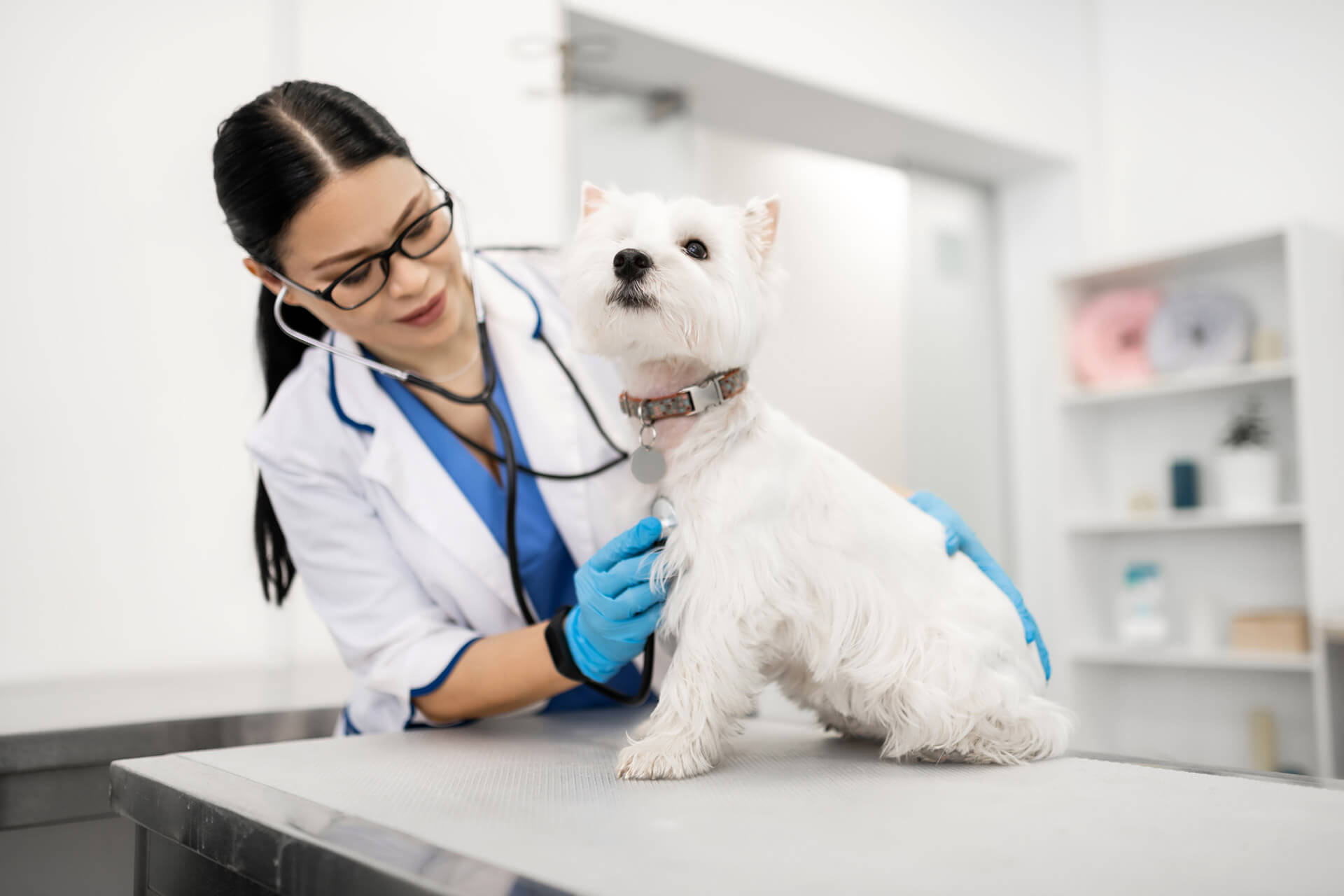
Tell your vet about the bad dog smell you experience and they will likely be able to tell you the reason, run further tests, and provide recommendations, treatment, or medication if necessary.
If your dog does have a health issue which is making them smell bad, early detection and treatment are key to a long and healthy life together!
6. Figure out your dog’s favorite hangout spots – and prevent them from escaping
Much like cats, dogs also tend to have their favorite places to spend most of their time. Whether that’s a nearby patch of woodland full of muddy paths or a neighborhood park with a pool they like to splash around in.
(Many of which can end up with them returning home soaked and smelly.)
So imagine being able to learn these spots and figure out exactly where your dog likes to spend most of their time – from the comfort of your couch? Just use Tractive’s Heat Map and Location History.

Now with just a glance at your phone, you can tell where your dog likes to hunt, hide, or just hang out – no matter how far they’re off roaming.
(Which, in an emergency – like if they get lost – can help you figure out where to start looking first.)
Besides, if you pick up that one of your dog’s favorite spots is a potentially “smelly” area – just use your Tractive device to set up a “no go zone.”
Now the minute your dog tries to venture into these “no go zones”, you get an instant escape alert on your phone. So you can intervene – and prevent them from coming home smelly.
7. Monitor your dog’s health & wellbeing
More often than not, a strange dog smell could indicate they’re struggling with a sickness or infection. Here are some of the health conditions that might make your dog smell weird all of a sudden:
- Kidney disease
- Dental diseases
- Diabetes
- Skin infections
- Ear infections
- Digestive issues (including gas)
- Infected anal sacs
And unfortunately, your dog is more likely to mask their discomfort from you. So if you’re smelling them a mile away, it might be that their condition has worsened.
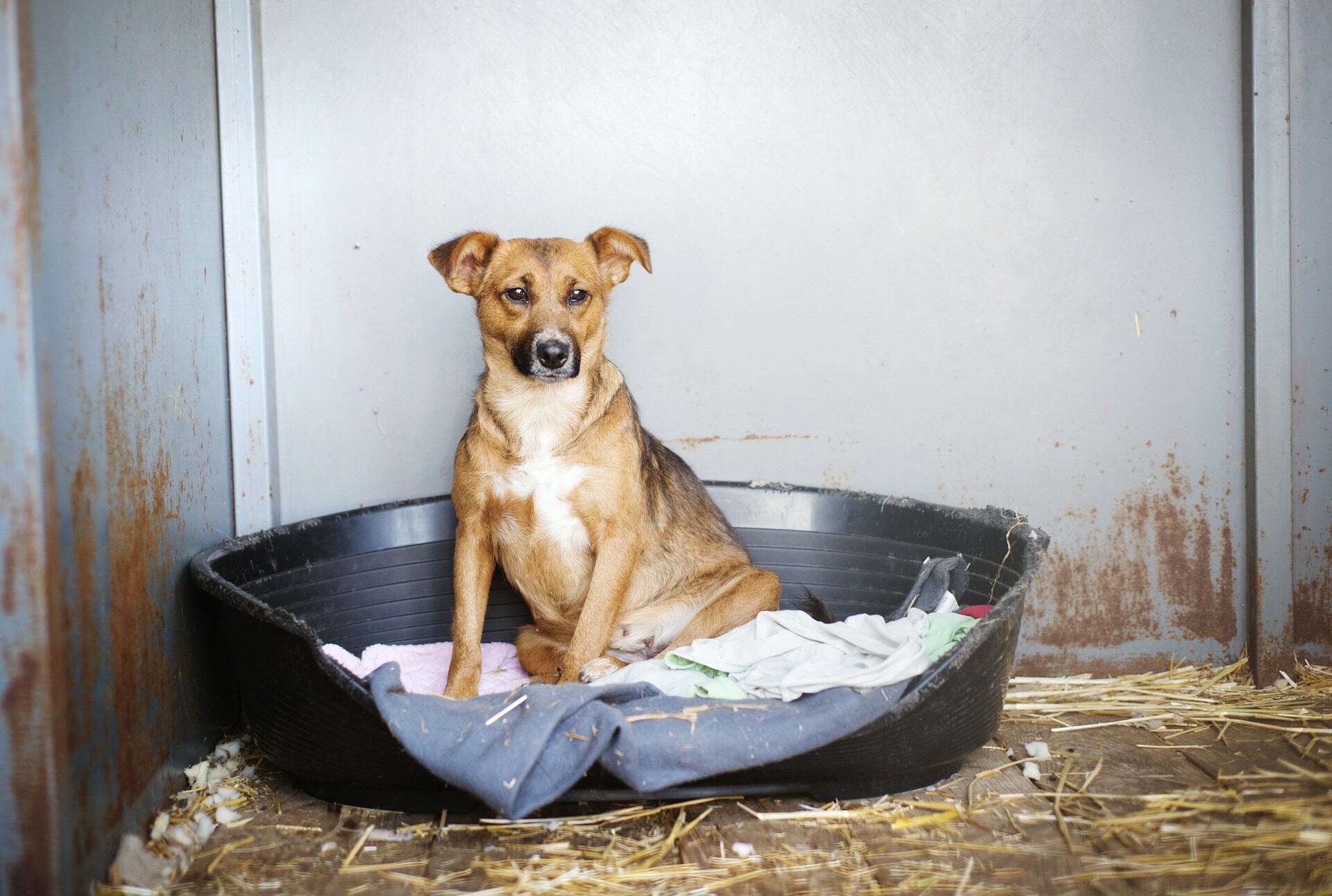
But here’s the good news: most of these diseases don’t develop overnight. They might begin with other, more subtle symptoms like lethargy or hyperactivity instead.
Which is where your Tractive device has you covered. Besides location tracking, it also comes with a built-in motion detector which picks up on your dog’s activity all day.
Now the minute you notice a drop in your dog’s activity, you can get them to a vet early – and catch on to a health emergency much in advance.
Evi, the PTSD dog – struggling with an ear infection
Here’s a story from one of our pet parents who picked up on a change in her dog’s behavior from their Wellness Profile – and narrowly missed a ear infection!
“Evi, my PTSD dog was the first to try it out. And after three and a half weeks of using, and finally really trusting the data that Tractive gave me, I found out she was sick before I could even really see it.“
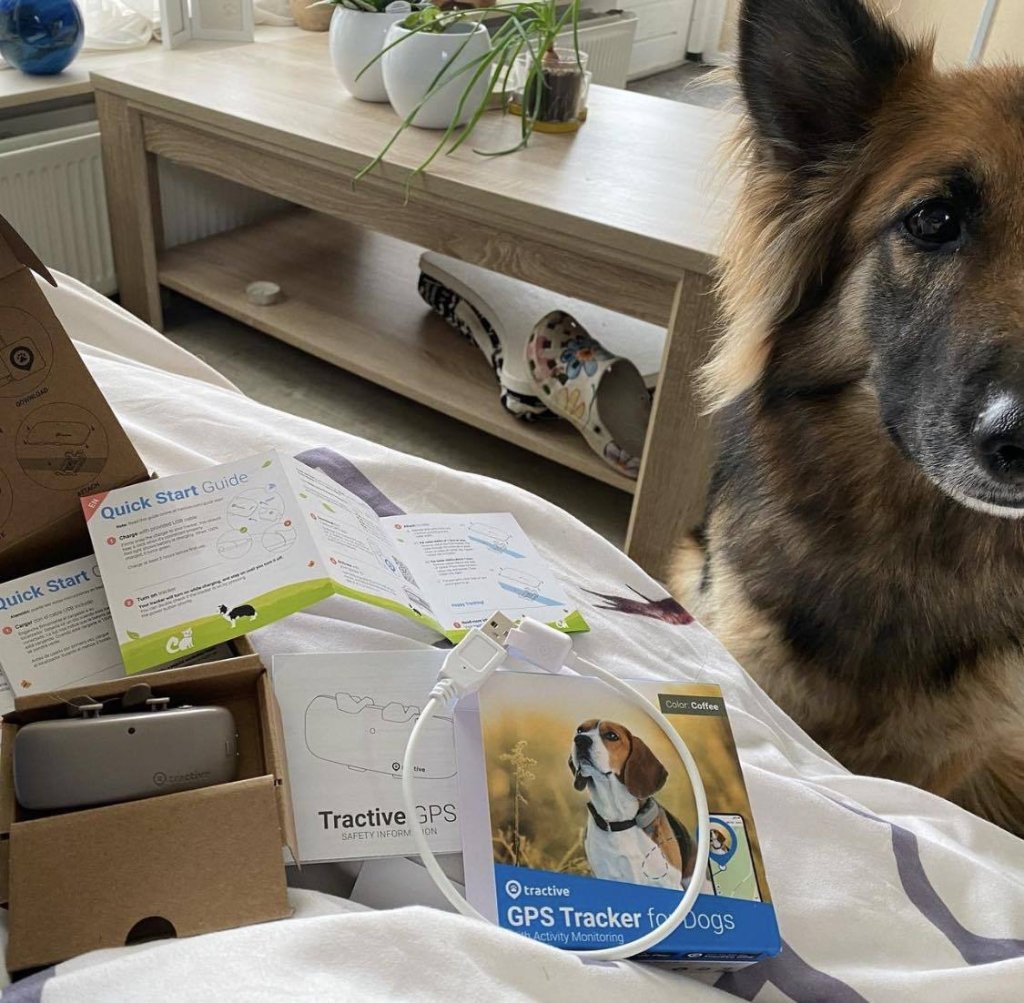
Her sleep quality suddenly drastically decreased from around 90% to 60% and her active minutes dropped by about 50 a day.”
“So even though she still looked happy and healthy, my Tractive device stated otherwise.“So I went to the vet with this information. They took me and Tractive seriously…and it turned out she had the beginning of an infection in her ears!”
“My Tractive GPS is a part of my primary gear now – and I don’t want it any other way.“
– Cissy V, Netherlands

“It can be easy to miss out on changes in your dog’s or cat’s regular activity – or just if they’re on the move more or less than usual.
So we’ve set up Activity Degradation alerts for when your pet’s active minutes drop significantly.
They can help you intervene in a situation where your pet might be struggling with an infection or even just pain.”
– Sebastian Raab, Product Manager at Tractive & occasional pet-sitter
How to get your dog to smell better – bath or no bath
Got a smelly dog at home and not sure what’s causing it? Here are a couple of tips to get your buddy smelling like home again:
- Monitor your dog’s diet. A high-quality diet of meat-based dog foods and dog-friendly fruits and vegetables can help improve any bad breath.
- Stay on top of your dog’s grooming. Make sure to brush their coats regularly and also clean around their eyes, ears, and nails.
- Wash your dog’s bedding regularly. Often, a weird dog smell can occur from the buildup of dirt, oils, and dander on their bedsheets.
- Make dog dental care a priority. Dental diseases don’t just make your dog smell bad – rather, these bacterial infections can potentially lead to fatal diseases over time, if left untreated.
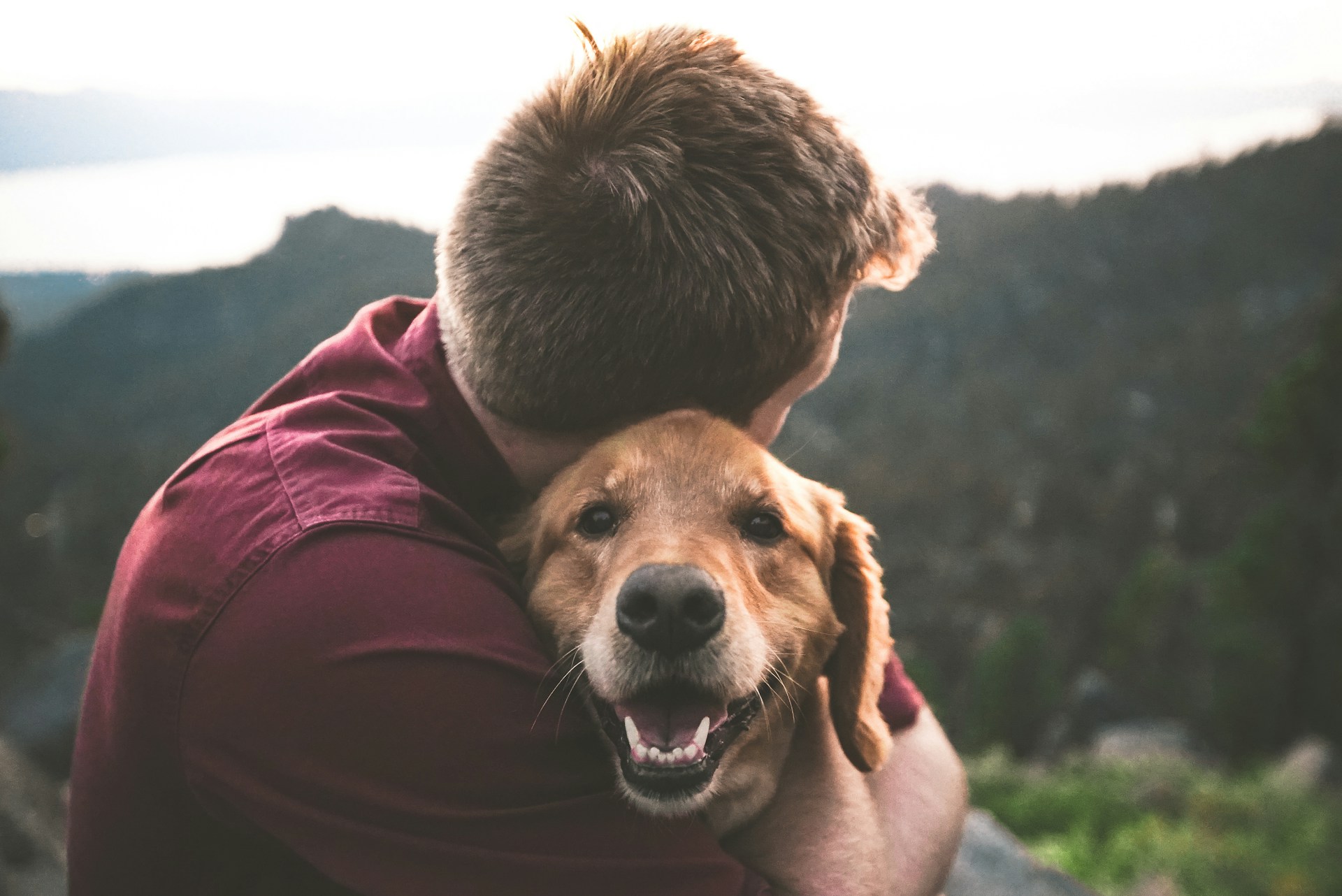
- Don’t skip out on your vet visits. Your local vet can run a proper checkup for your dog and help you understand the best treatment.
- Figure out your dog’s favorite hangout spots. With Tractive’s Heat Map and Location History, you can understand where your dog likes to spend most of their time. (Including potentially smelly areas.)
- Monitor your dog’s daily activity. Most smell-inducing diseases (like kidney disease) begin with symptoms like lethargy, or a drop in your dog’s activity. With your Tractive device, you can actually track their everyday exercise – and take action if you notice a dip.
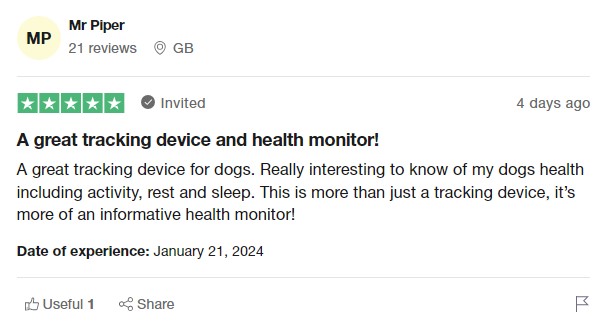
Still wondering how to get your dog to smell better? Here are a couple of extra tips:
And if you’ve liked this post, share it with a friend or a loved one – and let’s help build a safer, kinder world for our furry friends together.
Your furry friend’s health and wellbeing means as much as to us as it does to you. So we’ve made it a priority to only share medically-relevant content on our blog.
This post was checked, double-checked, and medically verified by Georgia-based vet, Dr. Dwight Alleyne.
Dr. Dwight Alleyne, DVM
Dwight Alleyne was born and raised in Long Island, New York where his love of animals began. His career for animals began working for a well-known no-kill animal shelter on Long Island.
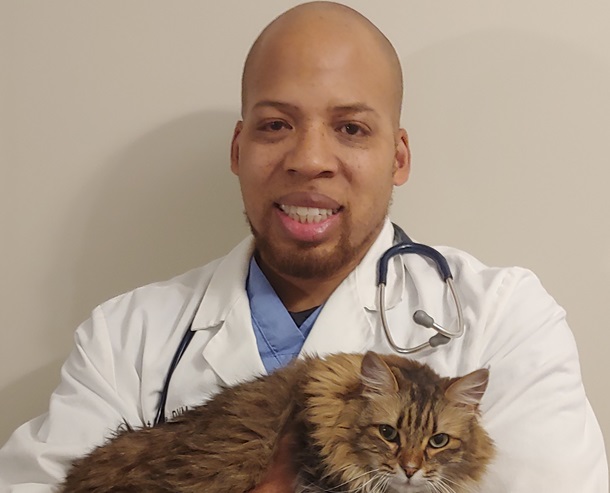
He worked his way up the career ladder working as a kennel technician, veterinary assistant, and then becoming a licensed veterinary technician at the shelter.
His passion for veterinary medicine led to him applying to and being accepted at Cornell University Veterinary where he graduated from in 2006. After completing a small animal rotating internship at Purdue University, he eventually made his way to Georgia where he has been practicing ever since.
Dr. Alleyne has practiced at several small animal clinics throughout Georgia. He has a keen interest in soft tissue surgery and has extensive experience in performing ultrasounds including echocardiograms.
When he is not practicing medicine, Dr. Alleyne enjoys writing and editing pet health articles and providing pet advice through telehealth.
Dr. Alleyne also has his own blog called “The Animal Doctor Blog.” Check it out on: www.anmldrblog.com.




